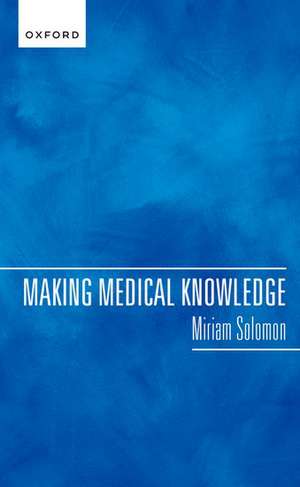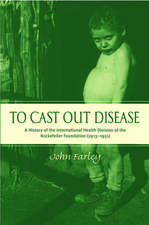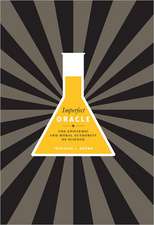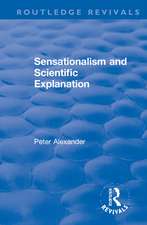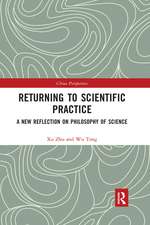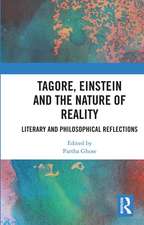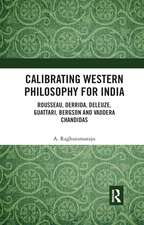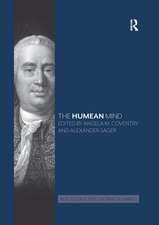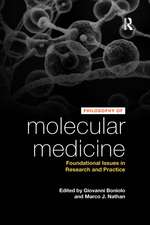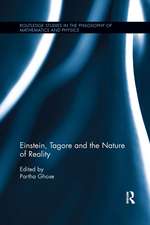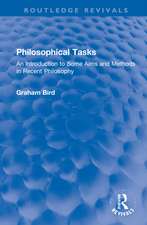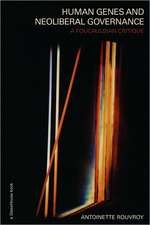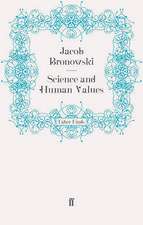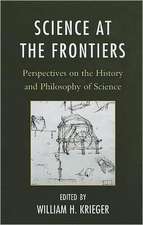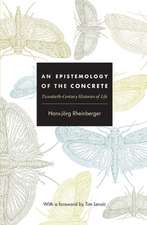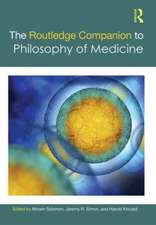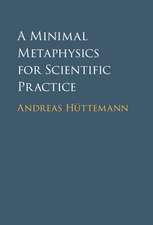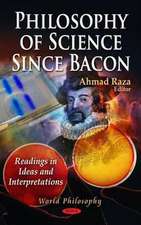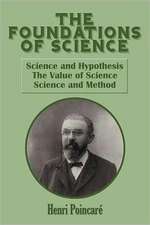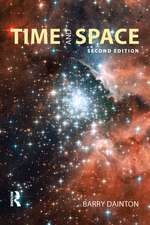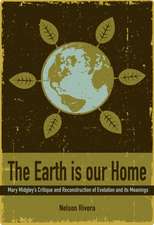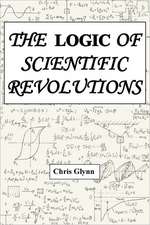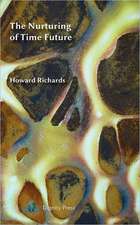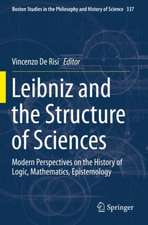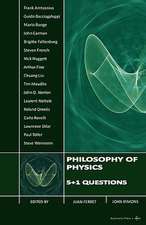Making Medical Knowledge
Autor Miriam Solomonen Limba Engleză Paperback – 21 iul 2022
| Toate formatele și edițiile | Preț | Express |
|---|---|---|
| Paperback (1) | 159.53 lei 10-16 zile | |
| OUP OXFORD – 21 iul 2022 | 159.53 lei 10-16 zile | |
| Hardback (1) | 504.23 lei 31-37 zile | |
| OUP OXFORD – 2 apr 2015 | 504.23 lei 31-37 zile |
Preț: 159.53 lei
Preț vechi: 179.68 lei
-11% Nou
Puncte Express: 239
Preț estimativ în valută:
30.53€ • 31.69$ • 25.46£
30.53€ • 31.69$ • 25.46£
Carte disponibilă
Livrare economică 18-24 februarie
Preluare comenzi: 021 569.72.76
Specificații
ISBN-13: 9780192872296
ISBN-10: 019287229X
Pagini: 288
Dimensiuni: 132 x 217 x 16 mm
Greutate: 0.34 kg
Editura: OUP OXFORD
Colecția OUP Oxford
Locul publicării:Oxford, United Kingdom
ISBN-10: 019287229X
Pagini: 288
Dimensiuni: 132 x 217 x 16 mm
Greutate: 0.34 kg
Editura: OUP OXFORD
Colecția OUP Oxford
Locul publicării:Oxford, United Kingdom
Recenzii
This is an impressive and important book. It is full of useful examples and case studies from medicine that help to make original points. And many of these points seem to me to be correct: in medicine, there is a plurality of methods, and these methods should be judged on their merits rather than by appealing to a hierarchy of methods. Solomon's historical approach to these issues is a productive way to proceed. It furthers the debate about the strengths and weaknesses of the various methods used in medical research and practice by providing a more complete picture of the relationships between these methods. It is a must-read for anyone interested in the epistemology of medicine or philosophy of science more generally. It is also beautifully written, with clear and informative prose, and concise summaries of the conclusions at regular intervals.
In this accessible, well-written book, Miriam Solomon reviews four interrelated but largely independent methods of medical knowledge production: the consensus conference, evidence-based medicine, translational medicine, and narrative medicine... Solomon's lucid and expert exploration of these four methods of knowledge production provocative and insightful. This book works as a stand-alone assessment of contemporary medical knowledge and as a stimulus for further research.
Making Medical Knowledge is well written, and Solomon's review of the philosophical arguments behind the ongoing debate about evaluating health technology is clear and insightful ... [a] brilliant book
a fascinating story, and Solomon tells it admirably ... Making Medical Knowledge is a valuable contribution that carefully untangles important epistemic questions in medicine.
This research aims to break down barriers. . . to overcome the opposition between art and science. . . and thus produce a clearer picture of the particular epistemic situation that characterizes medical knowledge.
Miriam Solomon (philosophy, Temple Univ.) has written an excellent work that explores common methods of creating medical knowledge ... The book is part history and part philosophy, and though Solomon succeeds in both areas, the philosophical and analytical discussions interspersed throughout really stand out and help readers unpack the complexities of each topic. The book is well researched, with plentiful references and footnotes, but does not read in a stereotypically dry, academic way. On the contrary, the book is a pleasure to read. Each chapter is organized into manageable sections, and the index is thorough. This is a well-written, well-organized, and well-constructed book, certainly worth the investment for those interested in any aspect of medicine ... Recommended.
[I]t is erudite, informative, provocative, and repays with interest engagement with its clearly written text and the author's long experience with medical and scientific epistemology. It is a superlative reference for anyone seeking to find out about modern medical epistemology. Philosophers of medicine and science, sociologists, and historians of medicine will find it of particular value.
In this accessible, well-written book, Miriam Solomon reviews four interrelated but largely independent methods of medical knowledge production: the consensus conference, evidence-based medicine, translational medicine, and narrative medicine... Solomon's lucid and expert exploration of these four methods of knowledge production provocative and insightful. This book works as a stand-alone assessment of contemporary medical knowledge and as a stimulus for further research.
Making Medical Knowledge is well written, and Solomon's review of the philosophical arguments behind the ongoing debate about evaluating health technology is clear and insightful ... [a] brilliant book
a fascinating story, and Solomon tells it admirably ... Making Medical Knowledge is a valuable contribution that carefully untangles important epistemic questions in medicine.
This research aims to break down barriers. . . to overcome the opposition between art and science. . . and thus produce a clearer picture of the particular epistemic situation that characterizes medical knowledge.
Miriam Solomon (philosophy, Temple Univ.) has written an excellent work that explores common methods of creating medical knowledge ... The book is part history and part philosophy, and though Solomon succeeds in both areas, the philosophical and analytical discussions interspersed throughout really stand out and help readers unpack the complexities of each topic. The book is well researched, with plentiful references and footnotes, but does not read in a stereotypically dry, academic way. On the contrary, the book is a pleasure to read. Each chapter is organized into manageable sections, and the index is thorough. This is a well-written, well-organized, and well-constructed book, certainly worth the investment for those interested in any aspect of medicine ... Recommended.
[I]t is erudite, informative, provocative, and repays with interest engagement with its clearly written text and the author's long experience with medical and scientific epistemology. It is a superlative reference for anyone seeking to find out about modern medical epistemology. Philosophers of medicine and science, sociologists, and historians of medicine will find it of particular value.
Notă biografică
Miriam Solomon is Professor of Philosophy at Temple University. She has a BA in Natural Sciences from Cambridge University and a PhD in Philosophy from Harvard University. Her first book was Social Empiricism (MIT Press, 2001) and she is the author of many articles in philosophy of medicine, philosophy of science, gender and science, epistemology and bioethics. She is a Fellow of the College of Physicians of Philadelphia.
